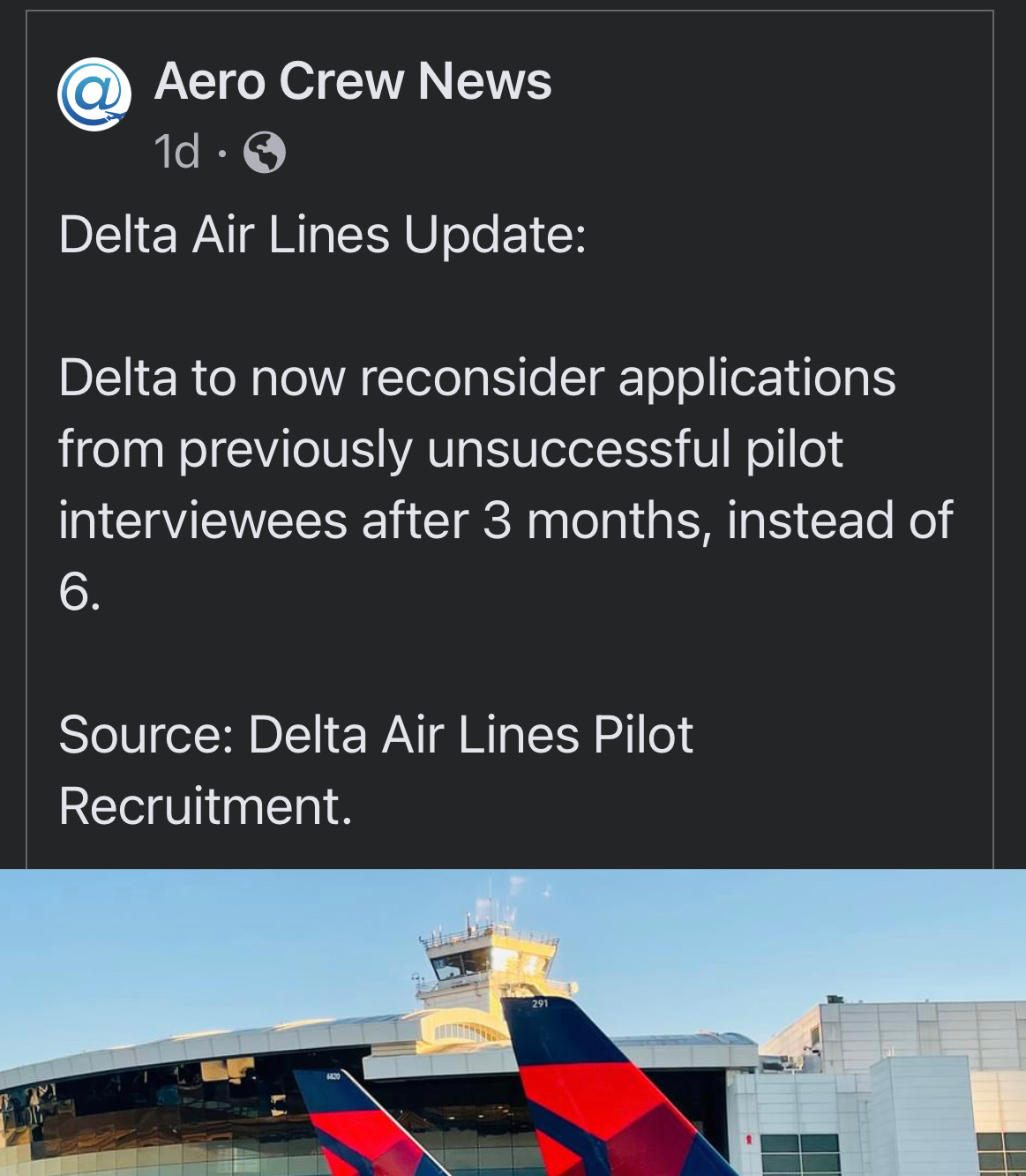There has been much discussion and banter about there being a pilot shortage. Some will say there isn’t, or that it isn’t a shortage, it’s a pay issue. You can call it whatever you want, or characterize why the current situation exists in lots of ways, but the simple fact is that we need more pilots to serve the employee needs of many professional pilot positions.
This post isn’t to discuss that point right now. It is to point out that during this hiring frenzy, the ratio of potential employees (pilots) to jobs needing pilots is lower than ever before. It means that companies are less selective with who they hire, becoming desperate enough to hire whoever they can find that is “qualified” to do the job.
In a post I saw this morning, we see the following statement:

This is just one piece of evidence, that hiring practices have changed.
A wide variety of commercial flight operations have dropped previously held minimum standards for hiring that included higher flight time experience, degree qualifications, and/or previous service in other airline operations. We are reducing our hiring minimums in an effort to find enough potentially qualified candidates just to fill the flight decks of our aircraft.
Many of us in the aviation industry have affectionately called this “warm body hiring.”
To me, a shortage in any employee sector exists not only when we can’t find enough people to do the jobs, but also when we are not selecting from a candidate pool for best-qualified individuals. When we are accepting all comers, even minimally qualified, I have no doubt that there will be safety and service quality effects over the long term.
This is a problem that we are going to need to solve, and I am confident we will in our aviation training industry.
In the past, when we “had enough pilots”, selection for jobs was competitive. Commercial flight operations had the opportunity to select for “best qualified” individuals, not just a warm body who happens to have enough certifications to legally be able to do the job that they hoped they could train to meet minimum standards. In the past decade, that has largely been an option that all but the most sought-after jobs no longer have the luxury to hold as their standard.
This brings me to a point for all of those who are in training to be professional pilots or are seeking employment. As our industry responds to shortages, we will find a way to train more pilots. And the best of the best operations will be to a point again where they will hire more carefully and with more discretion.
Too many times when I see pilots on practical tests, meet with instructors, or talk with pilots seeking professional jobs, they ask not if they were highly qualified, but if they met the minimum. Shouldn’t we be trying to be better than just barely meeting the minimum as pilots? Wouldn’t this be really important if we are going to be operating in a commercial environment?
I want to leave the reader with a question, especially if you are going to be or are seeking employment as a professional pilot.
Wouldn’t you want to be a pilot who was good enough and qualified enough to be hired even if there wasn’t a pilot shortage?

I fear that the number of candidates that strive for mediocrity far outweighs those that strive for excellence.